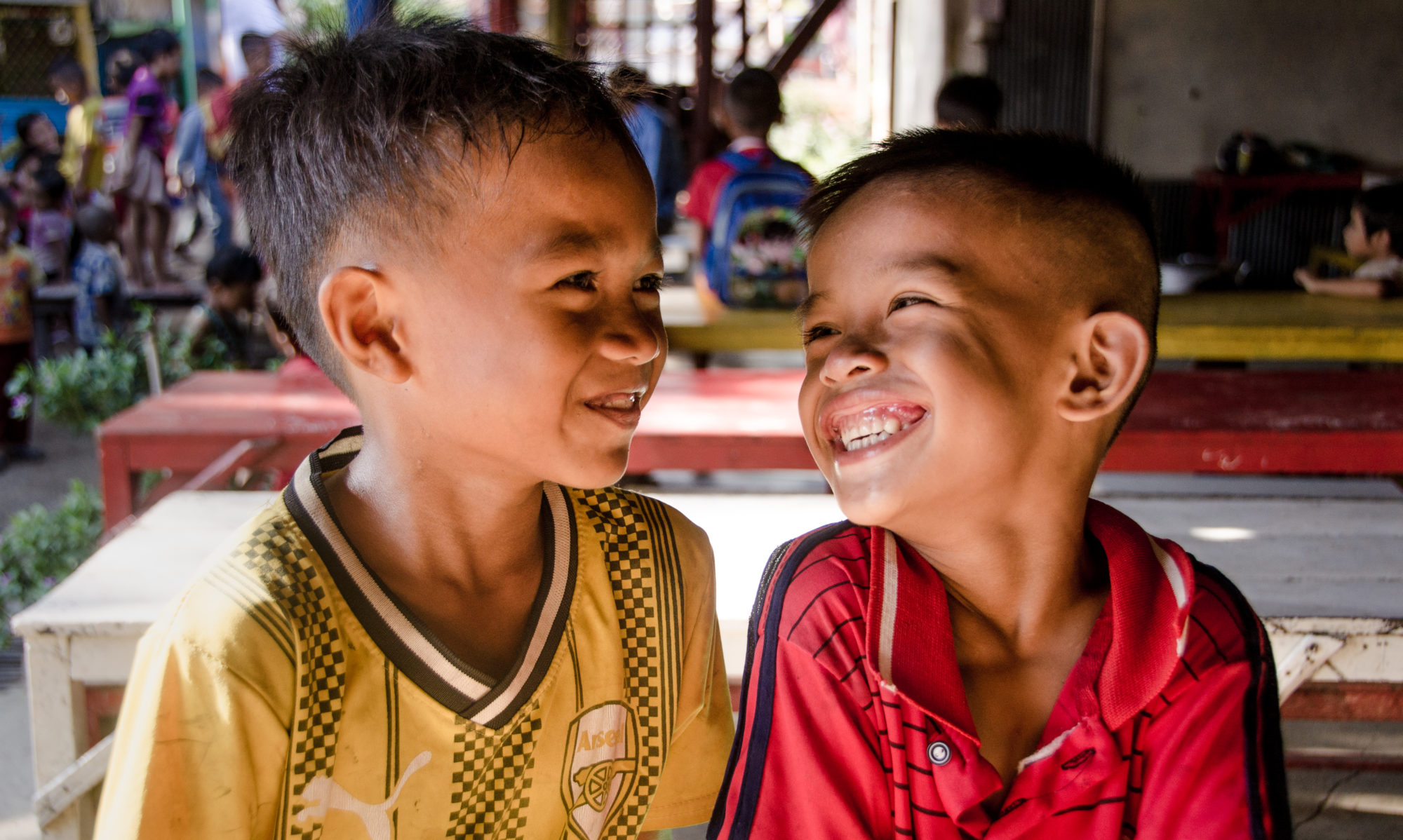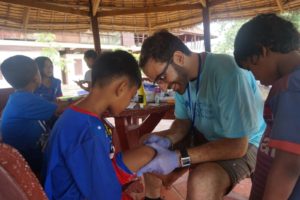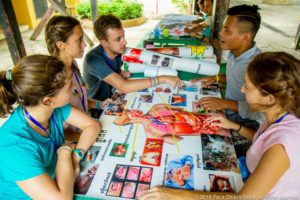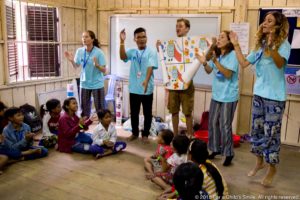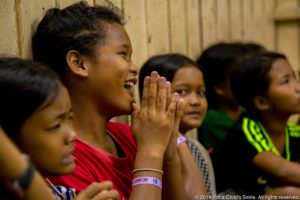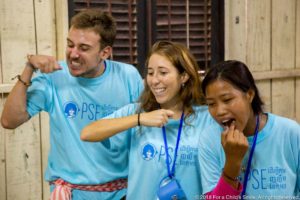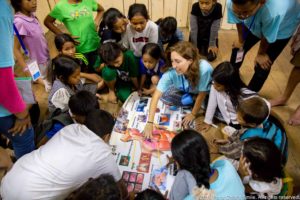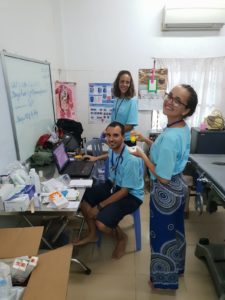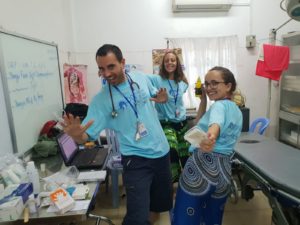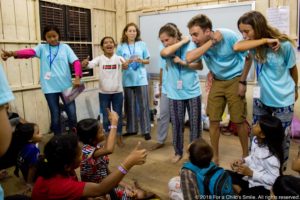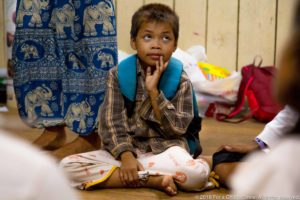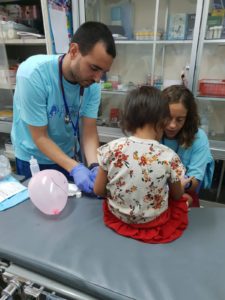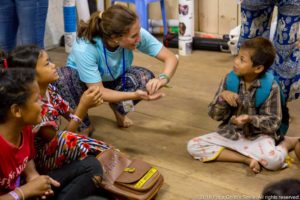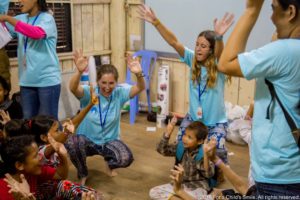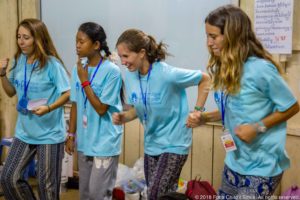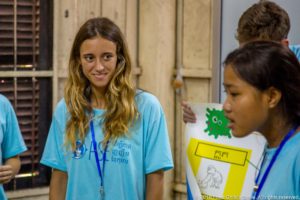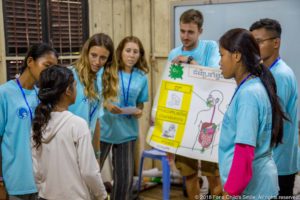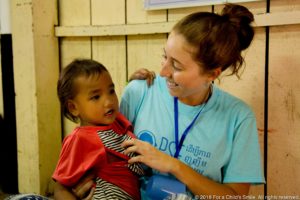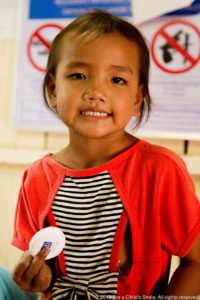The School Continuity Programme has a medical team of volunteers, essential for the children and the monitors to be safe, healthy, and fully functioning throughout the month. The doctors and nursing students dedicate time and effort to give the best care and visit each camp to reach as many children as possible.
Care and prevention
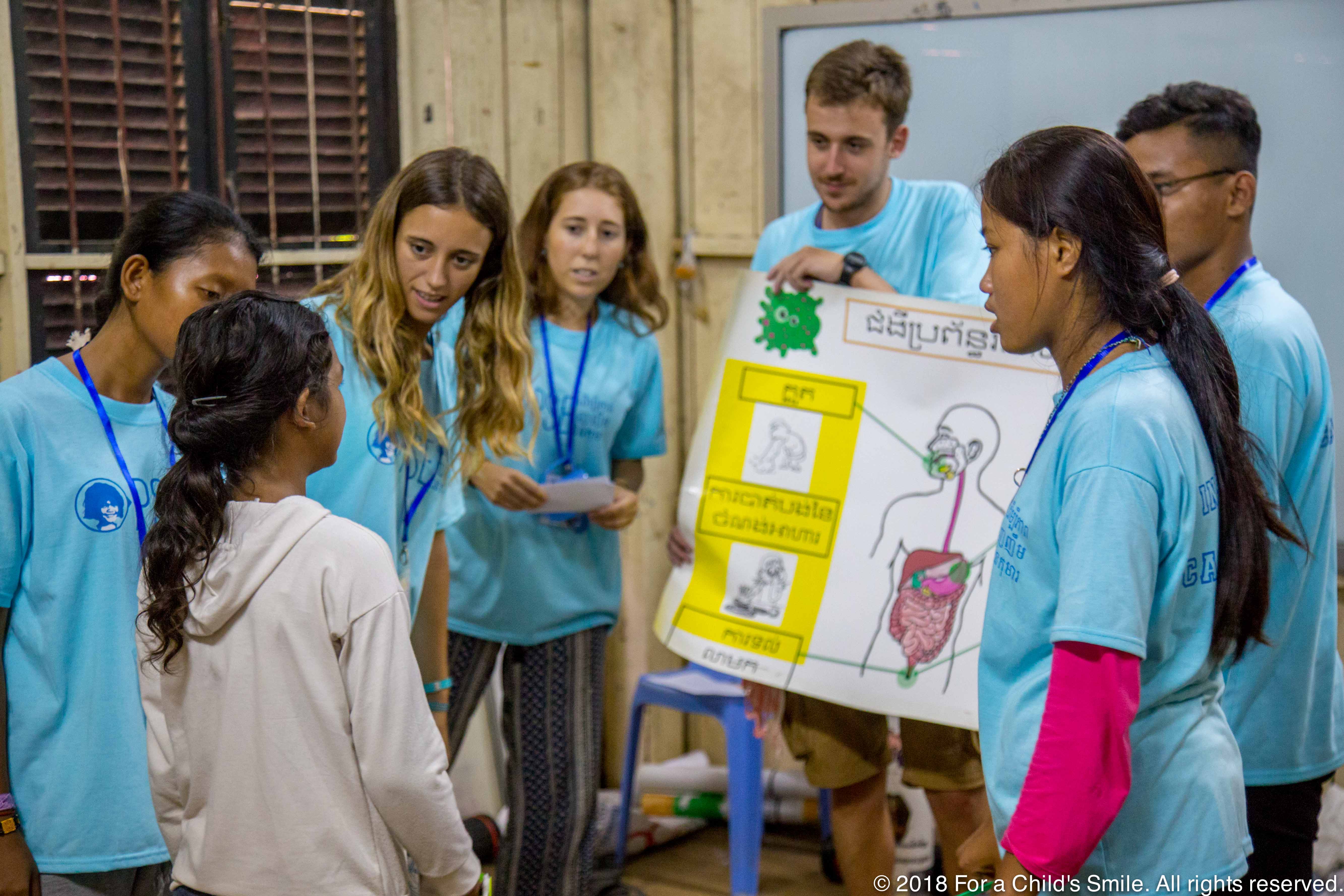
Along with Claudia and Angela, two nurses who volunteered last year, this year´s team is also formed by two doctors, Jaime B and Miguel Ángel, from the Camilo José Cela University.
The volunteers make such a big effort to give the best care to all the children but their bodies sometimes suffer from being so worn out
Ana, Rocío, Belén and Jaime C, visit each PSE centre around Phnom to educate Cambodian children about the importance of personal hygiene, food storage and, for older children, the risk of using drugs or acquiring a sexually transmitted disease.
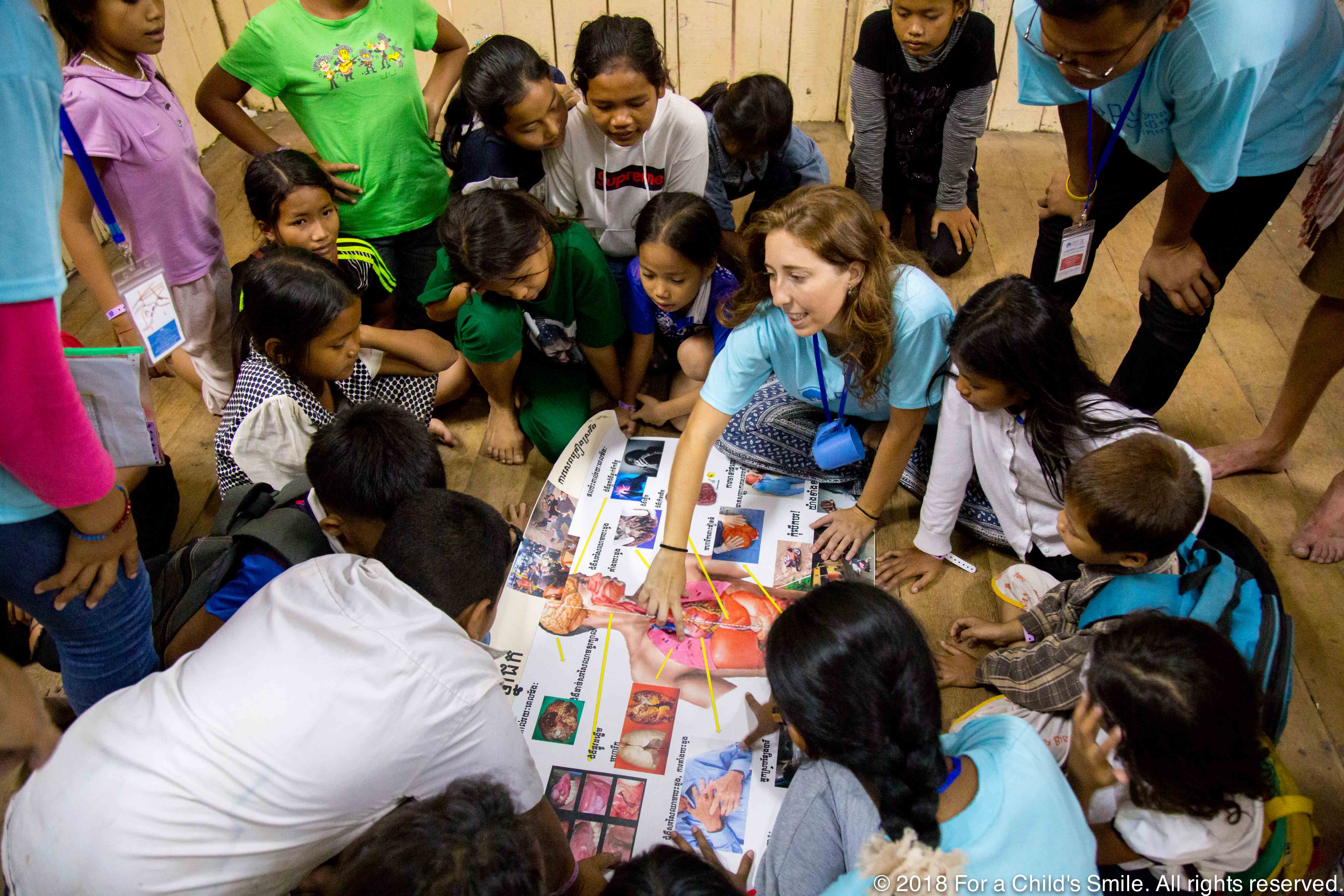
“For the youngest children, up to the age of 6, hand hygiene is taught, with emphasis on the use of soap (savou in khmer). Children between the ages of 6 and 13 are told about community hygiene and respiratory diseases, while groups of adolescents are told about drugs, sexually transmitted diseases and menstruation,” Ana explains.
“With the groups of teenagers, we discuss issues related to drugs, sexually transmitted diseases and, with the girls, we talk about menstruation”, Ana, member of the team for the second year
The effectiveness of their work depends to a large extent on their Khmer assistants, who translate their explanations, the various games they have prepared for kids or the questions they ask to test their level of knowledge.
“Children can have quite a lot of misconceptions, like thinking rain water is potable” Ana
Children listen carefully to the questions posed by the Medical team and often respond in unison, although sometimes there are conflicting opinions. “It is common to notice which children have listened to our talks over the years, because they know more. Those who haven’t yet may have some misconceptions, such as drinking rain water or that while you are menstruating, it is harmful to drink cola or to eat fish or mango,” explains Ana, 2nd year student in the Medical team.
The doctor is always close by

The health care group focuses on direct intervention, receiving volunteers, but sometimes also with children, under the supervision of PSE’s permanent medical staff.
Among the former, the most common consultations are usually related to gastrointestinal or respiratory infections, in addition to the classic insect bites. In children the pathologies change a little. Although they also often come with wounds that are over-infected or mildly traumas, it is common to find cases of scabies, skin worms and abscesses (infection and inflammation of the tissue with swelling and a collection of pus), according to the doctor and nursing students.
The most common consultations among volunteers are related to gastrointestinal or respiratory infections, in addition to the classic insect bites
“The children show some fear when they enter the clinic, but we try to reassure them by giving them balloons with painted faces and asking the Khmer monitors who accompany them to calm them down as much as possible,” says Angela, one of the nurses.
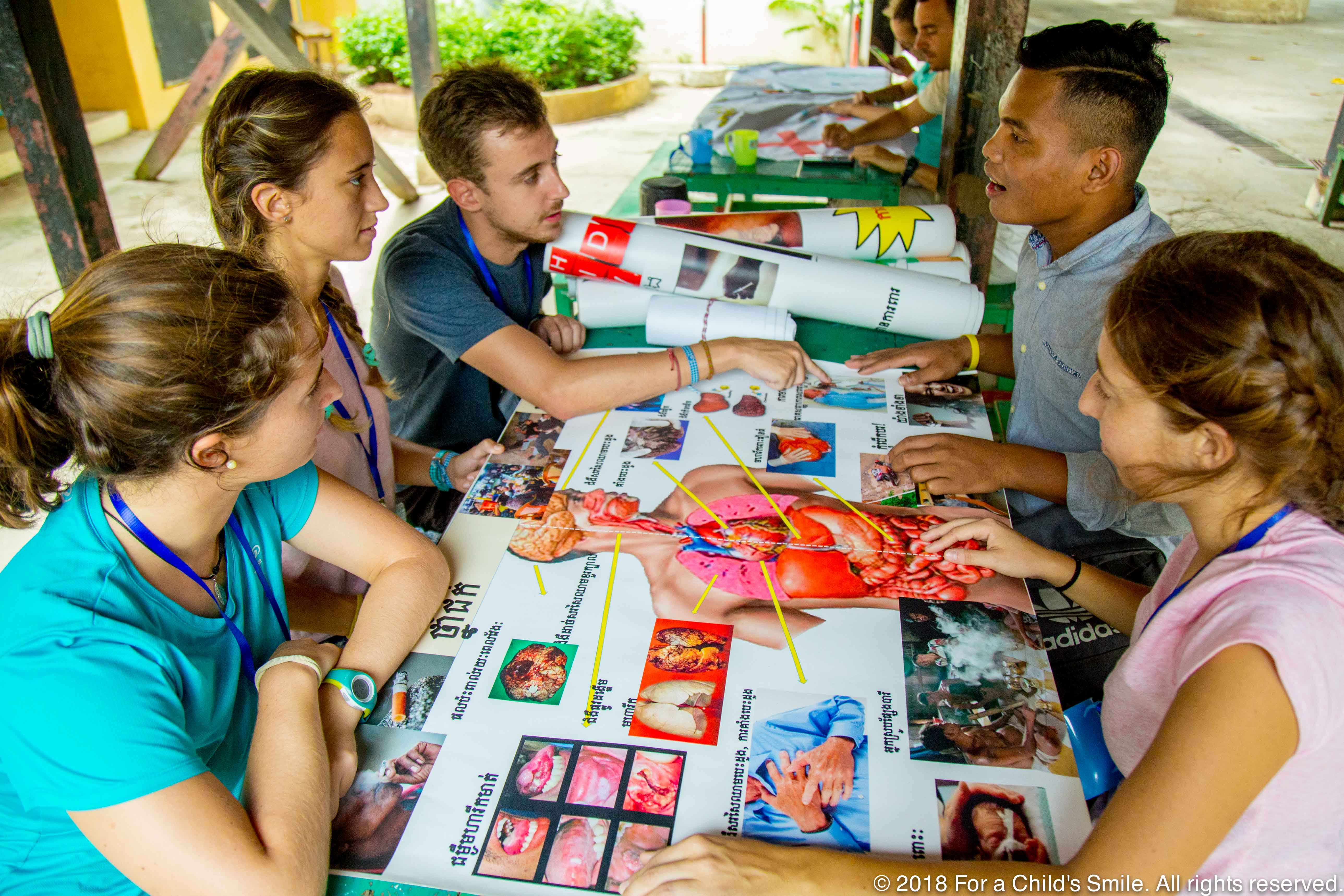
It’s very interesting to note the differences between the Khmer team and the European team when it comes to making certain interventions. Cambodians rely heavily on red tiger balm, with a composition similar to some gels for relieving pain from sports injuries.
Cambodians rely heavily on red tiger balm, with a composition similar to some gels for relieving pain from sports injury
They also take longer to resort to drugs –antibiotics are not easily prescribed here, and they are often very efficient with the use of cure materials. “They use a specific bending technique that allows them to make the most out of a gauze,” notes Angela. Another curiosity is that they always disinfect with alcohol, while Europeans disinfection involves the use of serum, antiseptic washing and sometimes other components, depending on the infection.
Khmer doctors take longer to use drugs, do not easily prescribe antibiotics, and are often very efficient with the use of cure materials
Children, however, are often the victims of a lot of ignorance about health due to a lack of education in that domain. “Some children have their fevers reduced by scratching a coin on a part of their bodies”, says Miguel Ángel, one of the doctors. “We also see some extremely infected wounds because they haven’t healed properly and become significant scars,” he adds
Union makes the difference
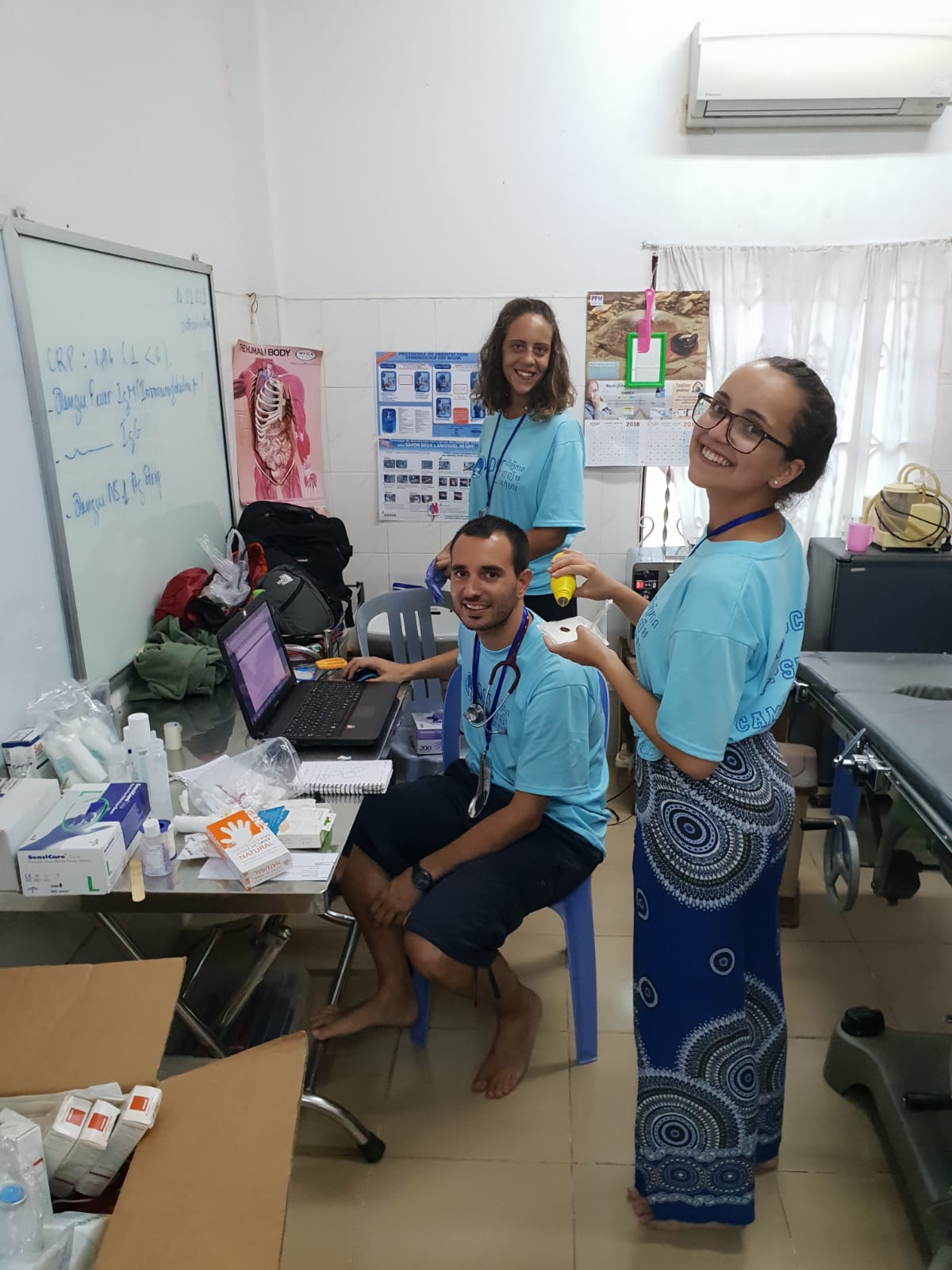
The two doctors in this summer programme have worked hard to ensure that both the care and prevention teams are united and, in their opinion, have succeeded in doing so. The student doctors have been able to participate in some of the consultations and even help with the supervision of the actual doctors, something very satisfying for them.
Long-term goals
At PSE, the permanent staff of doctors and nurses keep a record of all the children, so that consultations made with any of them during the summer programme are also reflected in their records. This helps in receiving further treatment, if necessary.
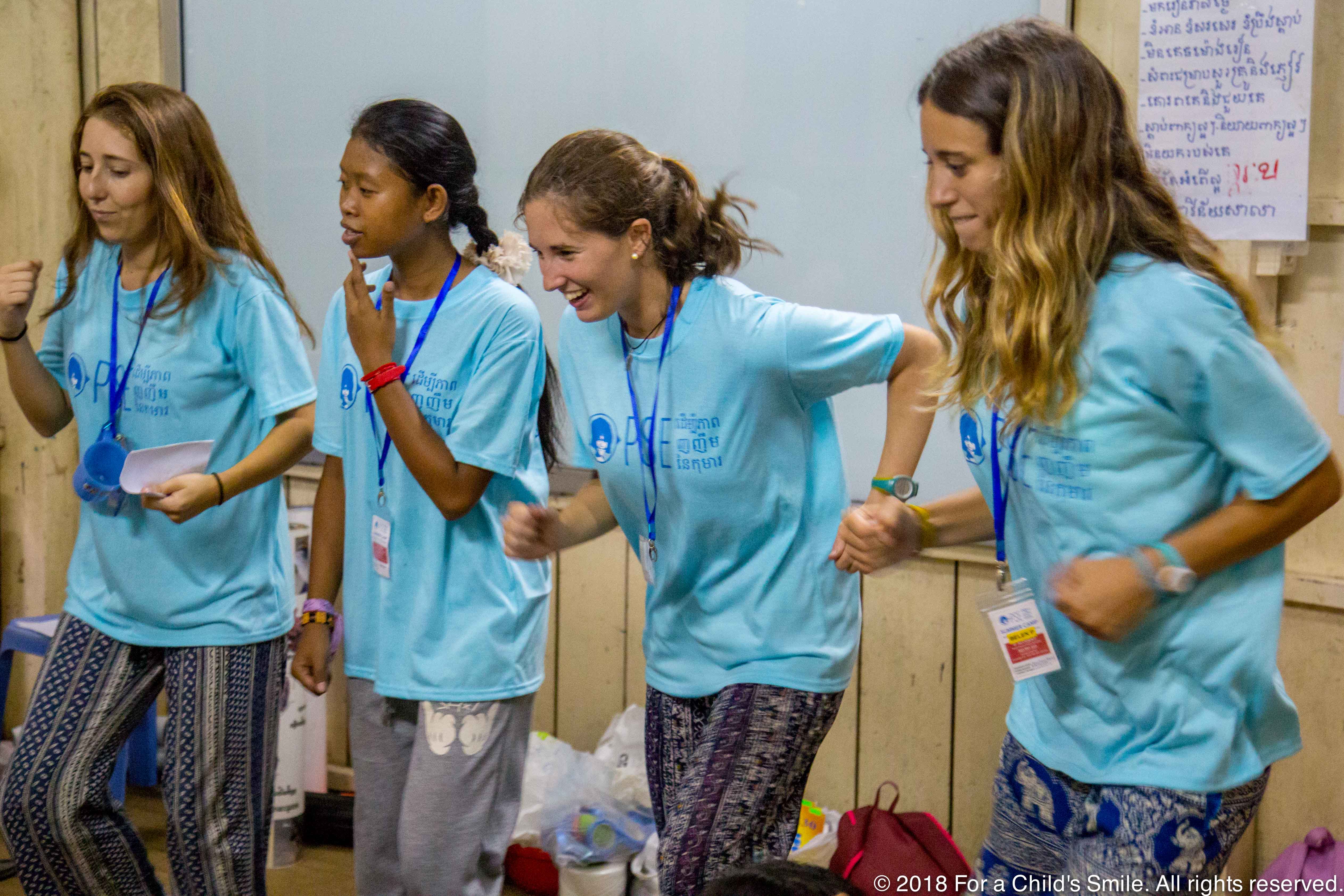
On the side of European volunteers, as a new initiative this year, doctors have created private surveys to create a database with the basic health profile of all participants. In addition, they have recorded the illnesses that have occurred and the names of the volunteers who have suffered from them. The aim is to provide more precise information on the need for medical supplies in future programmes, as well as to complete the information on the training days prior to the arrival of the volunteers in Cambodia.
As a new initiative this year, doctors have created private surveys to develop a database with the basic health profile of all participants. In addition, to have recorded the illnesses that have occurred and the names of the volunteers who have suffered from them
The work of this team is vital to the School Continuity Programme and their will to improve is infinite. Hopefully, the equipment of the PSE Clinic can soon be upgraded to the level it deserves. It is already practical and well prepared in the human aspect, only material aspects remain to be improved. “A new stretcher, more storage space and more surgical equipment” are some of the elements that nurses highlight.
The sponsor


PSE would like to thank Jamming Teatro and Compañía Jamms for its financial support and possitive energy to the School Continuity Programme.
